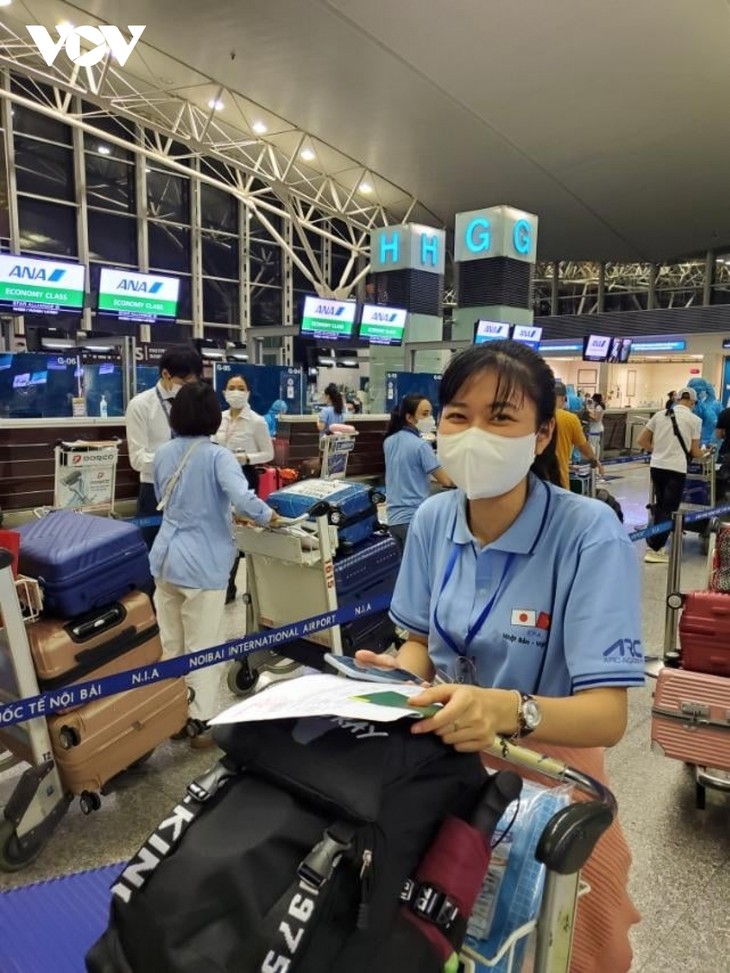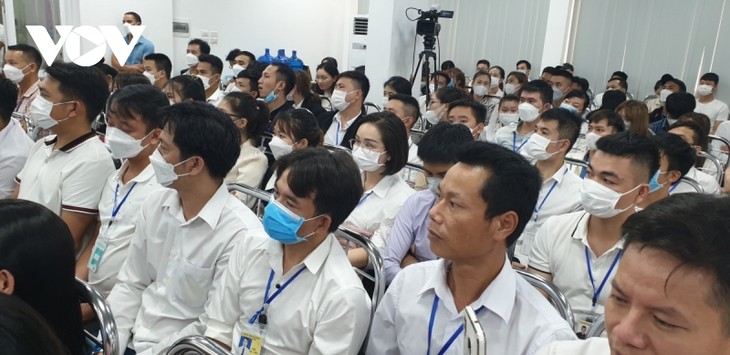(VOVWORLD) - Vietnam sent abroad 143,000 guest workers – nearly 160% of the target - last year and the number is forecast to grow. Right from the beginning of this year, positive signs have been recorded in traditional and new markets.
 Vietnamese workers at an airport before leaving to work in Japan. Vietnamese workers at an airport before leaving to work in Japan.
|
HCMC-based Sovilaco International Manpower Company has dozens of years of experience in sending guest workers, interns, and experts to 30 countries and territories around the world. After a 2-year COVID-19 hiatus, last year it restored its operations and is doing well.
Nguyen Xuan Trung, Sovilaco’s Director General, says the labor export sector has good prospects for 2023, with optimistic signs coming from Japan, Taiwan (China), and South Korea, who mainly import unskilled workers.
The market for skilled workers who can demand higher wages also promises breakthroughs, said Trung.
Trung recalled last year saw a remarkably higher number of workers sent abroad and this year will likely achieve the same or an even larger number.
"Our businesses have signed contracts in traditional markets, while newer markets in Europe, like Hungary, Poland, Romania, and Germany, are also receiving Vietnamese workers. In addition, Australia, Canada, and some countries in the Middle East have shown an interest in hiring Vietnamese workers,” Trung explained.
This year, Vietnam hopes to send at least 110,000 workers abroad. To that end, the Ministry of Labor, Invalids and Social Affairs will maintain the traditional labor markets and expand the number of Vietnamese guest workers working in new occupations in Europe and earning higher pay.
 Workers attend a job transaction session in Hanoi. Workers attend a job transaction session in Hanoi. |
Labor export businesses have praised the Ministry’s new direction, but called on the agency to make implementation more flexible and specific.
Nguyen Duc Nam, Chairman of the Sona International Manpower Supply and Trading Company in Hanoi, underscored the need to take more sustainable steps, such as expanding potential markets offering good salaries – the European and Australian markets, for example.
“But to develop those markets requires government policies and diplomatic missions that work with the government of host countries to organize seminars and exchanges between businesses. It’s also important to speed up the signing of bilateral agreements,” said Nam.
The Department of Overseas Labor says that in addition to management agency support, labor export enterprises need to take the initiative in training human resources.
Nguyen Gia Liem, the Department’s Deputy Director, said the agency is coordinating with businesses to prepare qualified workers to send abroad.
“To meet the standards of foreign labor markets and increase the number of Vietnamese guest workers, it’s necessary to improve the quality of human resources. To that end, we’ll connect vocational education centers with enterprises to train skilled workers,” Liem concluded.